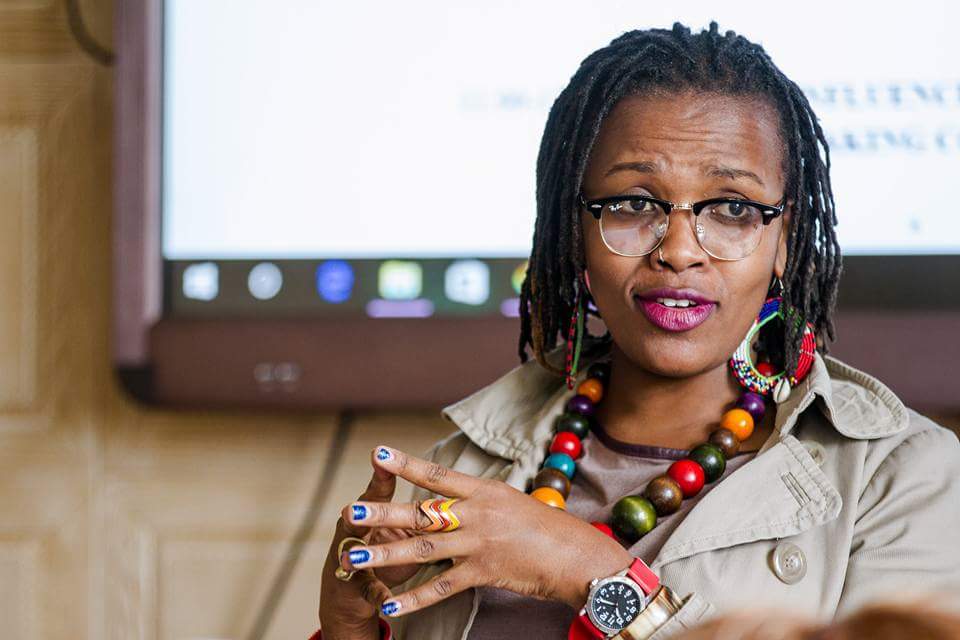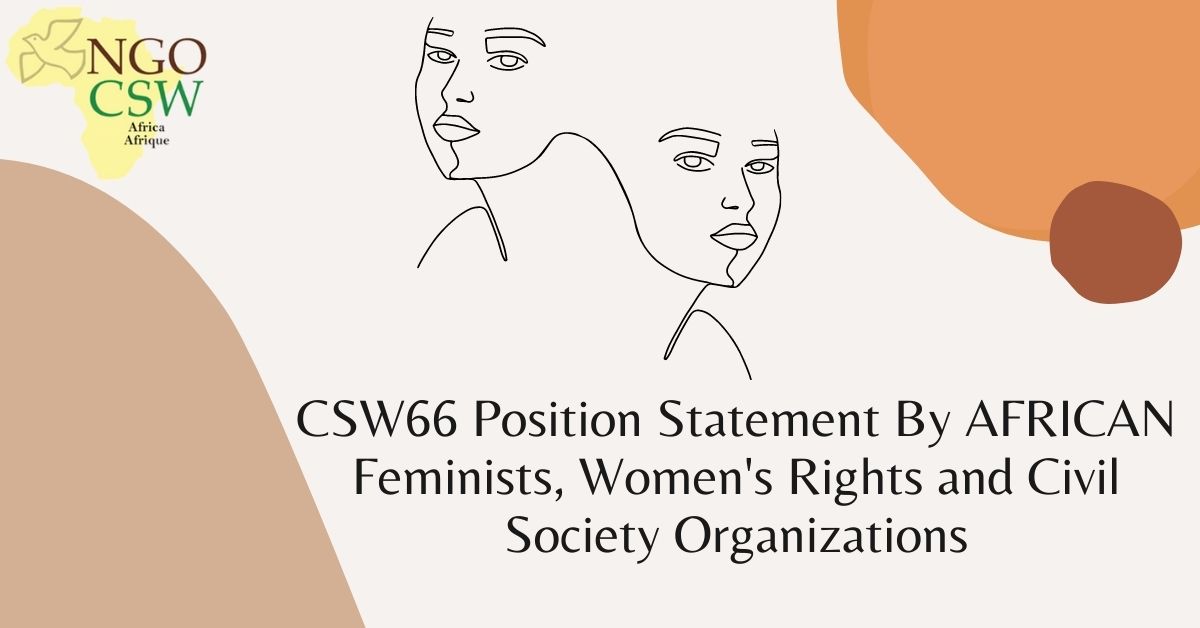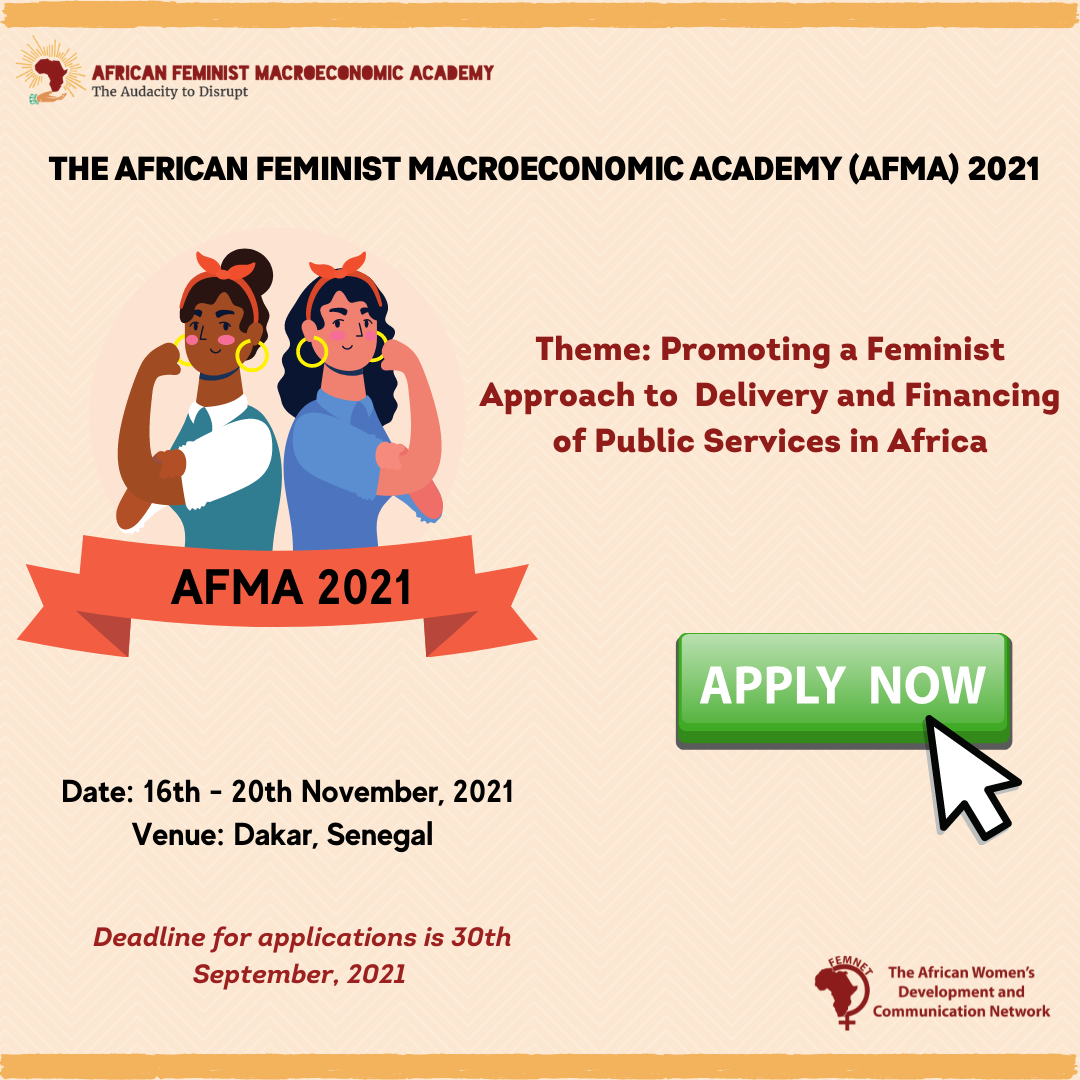
Strengthening young women’s movements across Africa
The Centre for Feminist Foreign Policy, had a candid conversation with Catherine Nyambura, Advocacy Officer at FEMNET and a bold feminist leader on her work and passion promoting gender equality and challenging the status quo. Check out the entire conversation below as interviewed by CFFP’s Jennifer Brough – and as first published on the CFFP website.
JB: Hi Catherine! Tell me about your current position.
CN: At FEMNET I work with young women from various African countries through training, capacity building, communications, and advocacy to strengthen young African women’s movements and amplify their voices so they can influence policies on sexual and reproductive health and rights [SRHR], alongside working to support and advance broader agendas on gender equality, women’s, and girls’ empowerment. At the moment, a typical day for me may consist of working with FEMNET membership across the 43 African countries to carry out joint advocacy and strengthen capacity and share information. Key to my role is amplifying the voices of diverse young women SRHR activists through social media, by hosting them on Twitter chats or featuring them on blogs. I also engage in policy dialogues at a national, regional and global level, such as influencing ongoing bills and policies in Kenya, as well as policy processes at the African Union and United Nations.
JB: What drew you to working in policy?
CN: I believe that at the heart of SRHR activism is affirming women and girls’ choices, liberation, and agency as people in their own right. Having grown up in a slum – one of the biggest in Nairobi (Mukuru), I realise the importance of women and girls in policy making. This is especially given the fact that the formulation and implementation is designed to change the lives of such women and girls, but often their voices and perspectives are missing.
“AS A FEMINIST, I ENGAGE IN POLICY BECAUSE IT PROVIDES AN OPPORTUNITY TO TACKLE AND ADDRESS STRUCTURAL CHALLENGES THAT OFTEN SEEM INDOMITABLE.”
JB: What are some challenges you’ve faced during your career?
CN: One of the biggest challenges so far has been funding; both to scale up projects, and to continuously participate in regional and global platforms that present an opportunity to amplify voices of women and girls. Moreover, the transition from activist to ‘expert’ has not been easy. Adolescent girls and young women are often limited to sharing realities of on the ground ‘victimhood’ by those in charge. We have to work very hard to be seen as ‘experts’, a term which is often very male and Global North-dominated. Despite these challenges, I have been able to achieve a lot, and for this, I thank all those who have been supportive, who have provided mentorship and different kinds of support.
JB: What keeps you motivated?
CN: The positive transformation I get to be part of co-creating together with other women and girls from across Africa and the world. Also, those who came before us and paved the way inspire me, and that we stand on their shoulders.
CN: One of the biggest challenges so far has been funding; both to scale up projects, and to continuously participate in regional and global platforms that present an opportunity to amplify voices of women and girls. Moreover, the transition from activist to ‘expert’ has not been easy. Adolescent girls and young women are often limited to sharing realities of on the ground ‘victimhood’ by those in charge. We have to work very hard to be seen as ‘experts’, a term which is often very male and Global North-dominated. Despite these challenges, I have been able to achieve a lot, and for this, I thank all those who have been supportive, who have provided mentorship and different kinds of support.
JB: What keeps you motivated?
CN: The positive transformation I get to be part of co-creating together with other women and girls from across Africa and the world. Also, those who came before us and paved the way inspire me, and that we stand on their shoulders.
“I AM PART OF LEAVING A LEGACY FOR THE NEXT GENERATION OF WOMEN AND GIRLS WHO WANT TO TAKE ON THE WORLD OF INEQUALITIES.”
JB: Do you consider yourself a feminist?
CN: Yes, I am feminist. This is driven by the perspective that my personal is political and that engaging in any space reflects the struggles and experiences that define my daily life. As a young African feminist, I recognise how the intersection between race, gender, and colonial experience manifest and how those get compounded by age. So yes, I am a feminist and that is what keeps me fired up and provides a compass.
JB: What do you think a feminist foreign policy would look like?
CN: Feminist foreign policy addresses structural inequality through deliberate focus and investments in gender equality and women and girls’ empowerment to provide an opportunity for equal access to social, economic, and political development. Feminist foreign policy boldly addresses the barriers that have kept women and girls behind by highlighting issues such as reproductive rights, tackling harmful practices and working towards economic justice beyond economic empowerment. It also addresses and remedies power imbalances between countries. Feminist foreign policy provides a nexus between macro and micro policy interventions.
CN: Yes, I am feminist. This is driven by the perspective that my personal is political and that engaging in any space reflects the struggles and experiences that define my daily life. As a young African feminist, I recognise how the intersection between race, gender, and colonial experience manifest and how those get compounded by age. So yes, I am a feminist and that is what keeps me fired up and provides a compass.
JB: What do you think a feminist foreign policy would look like?
CN: Feminist foreign policy addresses structural inequality through deliberate focus and investments in gender equality and women and girls’ empowerment to provide an opportunity for equal access to social, economic, and political development. Feminist foreign policy boldly addresses the barriers that have kept women and girls behind by highlighting issues such as reproductive rights, tackling harmful practices and working towards economic justice beyond economic empowerment. It also addresses and remedies power imbalances between countries. Feminist foreign policy provides a nexus between macro and micro policy interventions.

JB: Tell me more about your current projects and what you are working towards?
CN: The Young Women Stand Up be Counted project aims to strengthen the capacity of young women towards harnessing concerted advocacy and communication efforts to consolidate young women’s input into national, regional and global advocacy efforts. The project’s focus countries are Kenya, Mozambique and Guinea Conakry and it utilises dialogue, capacity building, coalition building, media engagement, including social media and leveraging on the power of sports and art to mobilise, train and facilitate young women’s informed, effective and strategic input and engagement at all levels.
The project’s implementation was well in sync with the 2017 African Union theme of ‘harnessing the demographic dividend through investments in youth’. The project provides FEMNET with a platform to foster deliberate focus and strengthened interaction with its young women membership demographic. It has also created critical pathways for ensuring young women’s meaningful participation and contribution to national, regional and global policy advocacy. Through fostering innovation and creativity, the project has created scalable models for engaging young women and for creating space for young women in the mainstream women’s movements.
JB: And finally, what is your favourite book, fiction/non-fiction, by a woman author?
CN: Speaking Out: The Female Voice in Public Contexts edited by Judith Baxter.
CN: The Young Women Stand Up be Counted project aims to strengthen the capacity of young women towards harnessing concerted advocacy and communication efforts to consolidate young women’s input into national, regional and global advocacy efforts. The project’s focus countries are Kenya, Mozambique and Guinea Conakry and it utilises dialogue, capacity building, coalition building, media engagement, including social media and leveraging on the power of sports and art to mobilise, train and facilitate young women’s informed, effective and strategic input and engagement at all levels.
The project’s implementation was well in sync with the 2017 African Union theme of ‘harnessing the demographic dividend through investments in youth’. The project provides FEMNET with a platform to foster deliberate focus and strengthened interaction with its young women membership demographic. It has also created critical pathways for ensuring young women’s meaningful participation and contribution to national, regional and global policy advocacy. Through fostering innovation and creativity, the project has created scalable models for engaging young women and for creating space for young women in the mainstream women’s movements.
JB: And finally, what is your favourite book, fiction/non-fiction, by a woman author?
CN: Speaking Out: The Female Voice in Public Contexts edited by Judith Baxter.
Related Tags
Related Posts
CSW66 Position Statement By AFRICAN Feminists, Women’s Rights and Civil Society Organizations
Acknowledging that Africa is the most vulnerable continent to climate change despite having contributed the least in creating
Learn MoreAFMA 2021 Call for Applications // AFMA 2021 Appel à candidatures
Theme: Promoting a Feminist Approach to Delivery and Financing of Public Services in Africa AFMA 2021 Call for
Learn More

